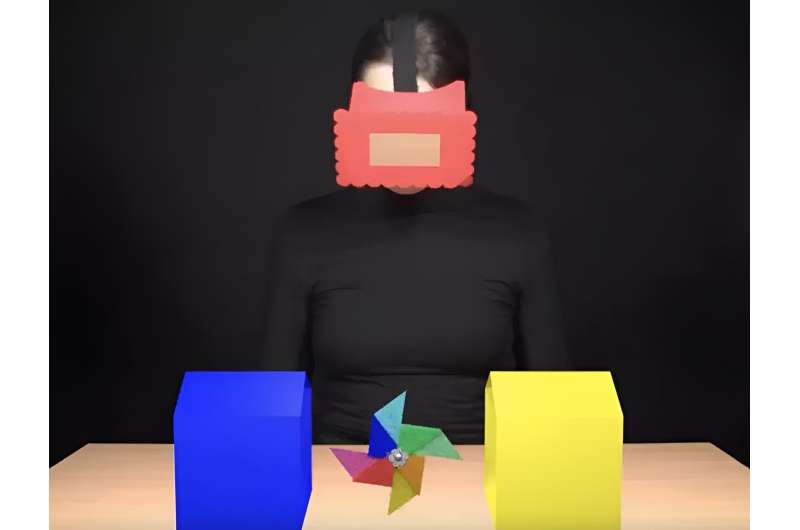This article has been reviewed according to Science X's editorial process and policies. Editors have highlighted the following attributes while ensuring the content's credibility:
fact-checked
peer-reviewed publication
trusted source
proofread
Whether we spontaneously put ourselves in someone else's shoes is a question of effort, says study

One of the most important human abilities is to understand what other people are thinking. The perspective of others seems to influence us even when it is completely irrelevant to us. Katrin Rothmaler and Charlotte Grosse Wiesmann from the Max Planck Institute for Human Cognitive and Brain Sciences in Leipzig (MPI CBS) have now investigated in a study to what extent the perspective of others actually influences our thinking subliminally.
If we are influenced by the perspective of others in our own perception or our own behavior, this is referred to in science as "altercentric." It is still unclear whether such altercentric effects can be attributed to universal attentional processes or whether we actually spontaneously process the perspective of our fellow human beings.
To test this, Katrin Rothmaler and her team conducted two independent experiments with a total of 234 participants. At the beginning of the experiments, the participants were familiarized with two blindfolds: one blindfold was transparent, the other was not. The participants then watched videos in which an actress wore one of these blindfolds. Based on their own experience with the blindfold, the participants were now able to gain the perspective of the actress.
The research is published in the journal PLOS ONE.
Evidence against altercentric effects
Katrin Rothmaler explains the results: "Unlike in previous studies without blindfolds, we were able to find statistical evidence against altercentric effects in the participants' reaction times in our experiments. At the same time, they were strongly influenced by their own perspective. These findings suggest two different interpretations: either altercentric effects are actually only due to simple attentional processes or we cannot implicitly process the perspective of others if we have to infer it from our own experiences."
So what does this mean for our everyday lives? If we can read the other person's perspective directly, it can subliminally influence our attention and our behavior. However, if the other person's perspective has to be painstakingly developed first, these implicit processes stop. Whether we spontaneously put ourselves in someone else's shoes therefore depends on how much effort is involved.
More information: Katrin Rothmaler et al, Evidence against implicit belief processing in a blindfold task, PLOS ONE (2023). DOI: 10.1371/journal.pone.0294136





















